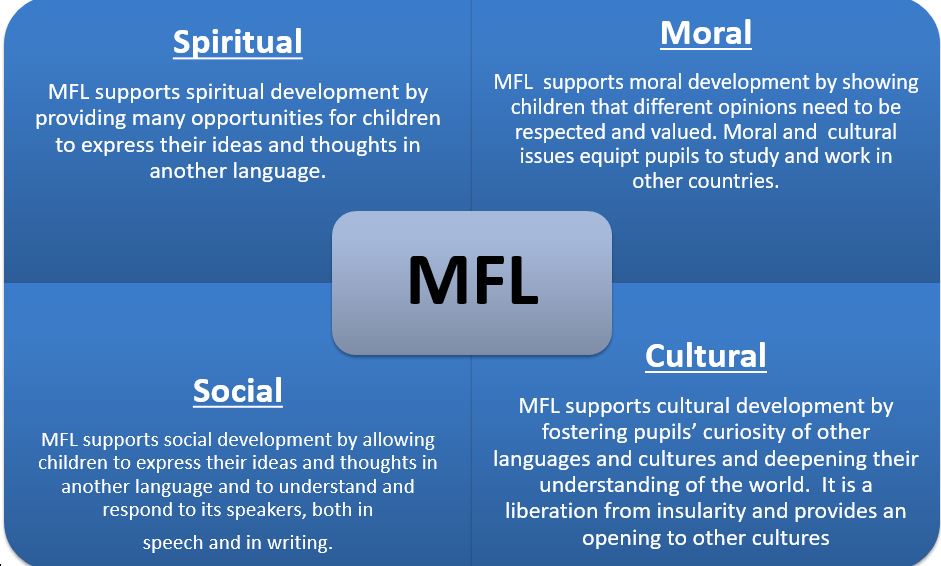Languages Curriculum
a. Who leads this subject?
Languages Subject Specialist/Champion: Megan Littler
Languages in school Assistant:Kadie Jones (QTS)
Languages specialist teachers:
b. Modern Foreign Languages Curriculum Intent
The skills, knowledge and understanding gained through learning a language contribute to the development of children’s oracy and literacy and to their understanding of their own culture and those of others. At St Margaret's CE Primary School we believe that a strong acquisition of French will facilitate the learning of other foreign languages later in life. We will prepare children for the KS3 language curriculum to enable them to transfer confidently and successfully.
c. MFL French Units (Top Level Coverage)
d. Modern Foreign Language Knowledge Boards
Some aspects of our teaching are single subject based but our integrated subject approach ensures that we have the National Curriculum Coverage.
Our knowledge boards have been designed by our curriculum team of experts and secures the coverage and progression through our school.
MFL Knowledge Board:
https://drive.google.com/drive/folders/1AgTj7cijDqPc-aoiZfv1tzYqcGlEmBUx?usp=sharing
e. Spiritual, Moral, Social and Cultural education in Languages
f. Modern Foreign Languages Curriculum Purpose
Learning a foreign language is a liberation from insularity and provides an opening to other cultures. A high-quality languages education should foster pupils’ curiosity and deepen their understanding of the world. The teaching should enable pupils to express their ideas and thoughts in another language and to understand and respond to its speakers, both in speech and in writing. It should also provide opportunities for them to communicate for practical purposes, learn new ways of thinking and read great literature in the original language. Language teaching should provide the foundation for learning further languages, equipping pupils to study and work in other countries.
g. Modern Foreign Languages Aims
The national curriculum for languages aims to ensure that all pupils:
• understand and respond to spoken and written language from a variety of authentic sources
• speak with increasing confidence, fluency and spontaneity, finding ways of communicating what they want to say, including through discussion and asking questions, and continually improving the accuracy of their pronunciation and intonation
• can write at varying length, for different purposes and audiences, using the variety of grammatical structures that they have learnt
• discover and develop an appreciation of a range of writing in the language studied








 Tweets by @smceps
Tweets by @smceps